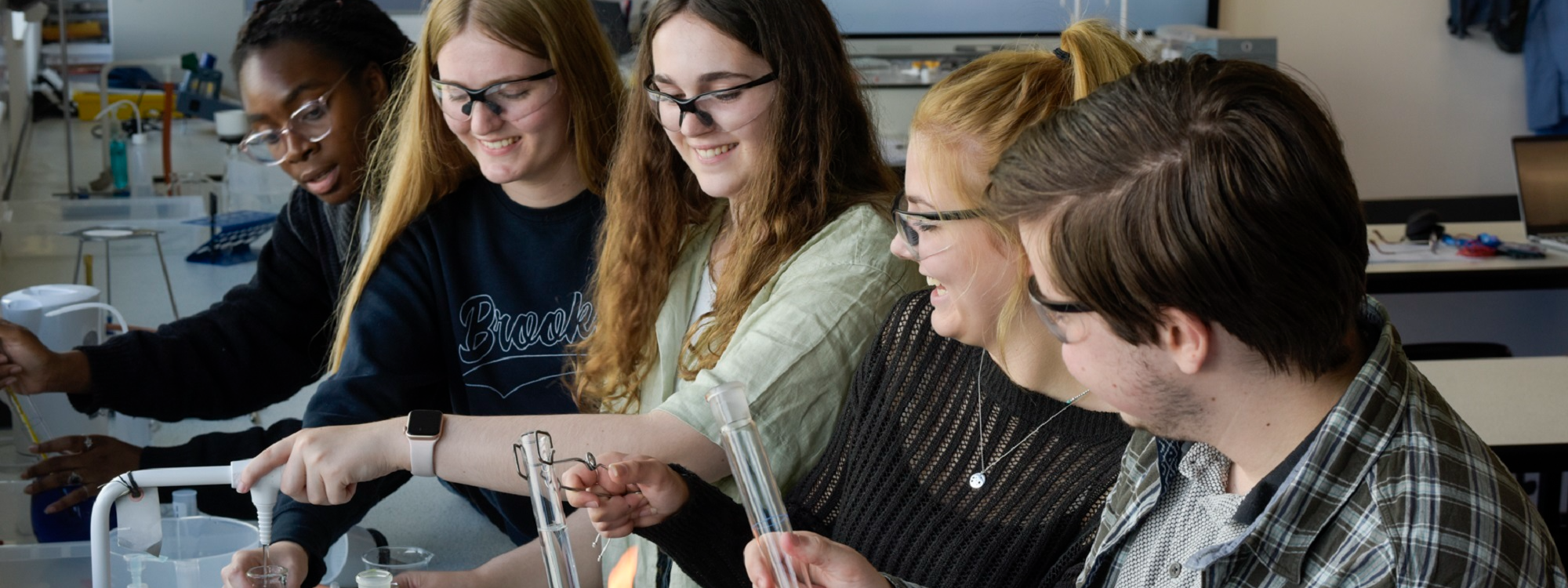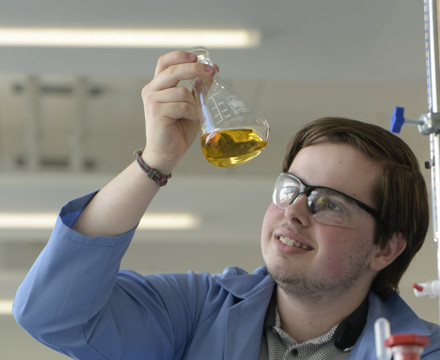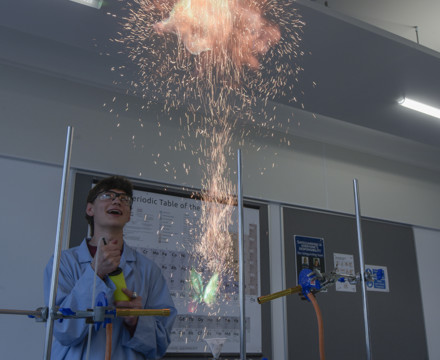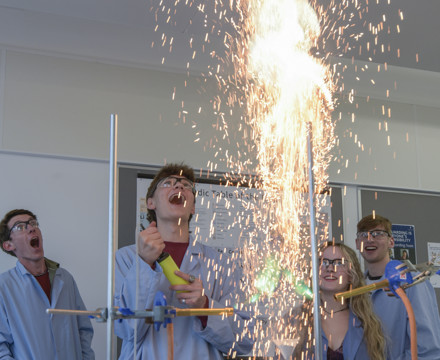Chemistry
Back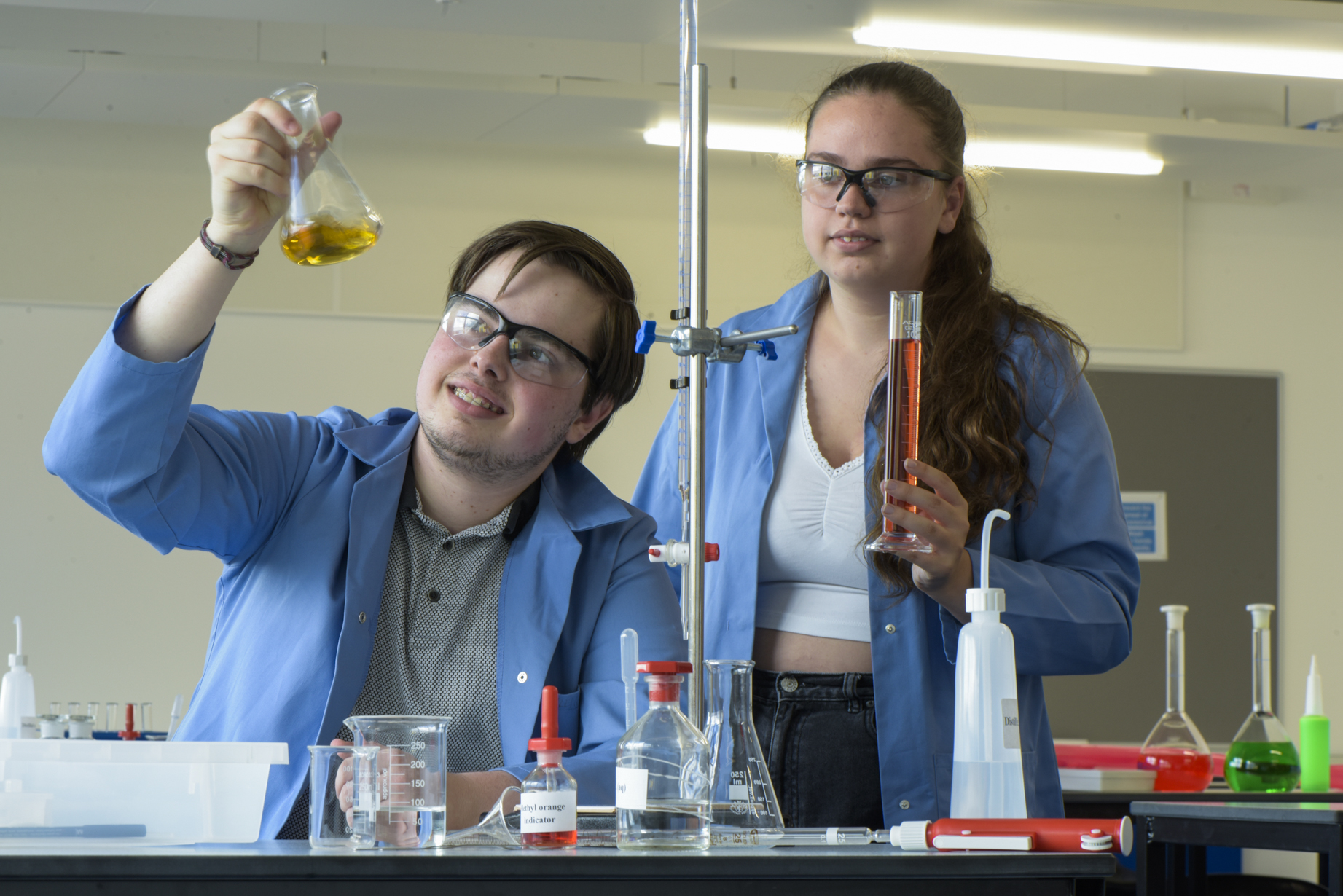
A Level Chemistry attempts to answer the big question ‘what is the world made of’ and it’s the search for this answer that makes it so fascinating. From investigating how one substance can be changed into another, to researching new drugs to save millions of lives, the opportunities that chemistry provides are endless. Many of the topics studied in year 12 will be familiar to students from their GCSE studies, however students will gain a much deeper understanding and add context through relevant examples from the real world. The different topics are divided up into the three main areas of chemistry; physical, organic and inorganic.
Physical chemistry is the study of how matter behaves on a molecular and atomic level and how chemical reactions occur, including atomic structure, calculations, bonding, energetics, kinetics, equilibria, thermodynamics and electrochemical cells.
Inorganic chemistry is concerned with the properties and behaviour of inorganic elements and compounds, which includes the alkaline earth metals, the halogens and the transition metals.
Organic chemistry is the study of the structure, properties, composition, reactions, and preparation of carbon-containing compounds. We look in detail at hydrocarbons and a wide range of functional groups including alcohols, halogenoalkanes and amines. The chemistry of biological molecules, for example DNA and protein structure are also studied.
“A Level Chemistry advances to an exciting stage. It involves using your initiative to understand the theories before putting them into practice yourself. You will begin to understand how important Chemistry is today, you will even delve into the finer points of how Chemistry works as a whole.“
Next Steps
Chemistry is highly regarded by universities and facilitates entry to a range of popular degree courses including medicine, pharmacy, pharmacology, biochemistry, veterinary science, dentistry, natural sciences, biology, environmental science, chemical engineering, maths and of course chemistry.
For those not wishing to go to university, higher apprenticeship schemes are offered by a number of the big STEM companies including AstraZeneca, GSK, Pfizer, Rolls Royce and Unilever. Higher science apprenticeships involve studying for a degree, whilst working and are available in jobs ranging from lab technic.
Entry Requirements
Standard entry requirements, plus:
· Minimum Grade 6 Chemistry or 66 in Combined Science
· Minimum Grade 6 Maths
· Average GCSE Score 5.5
The college may require students to attend Core Maths to support their learning
Exam board
AQA


